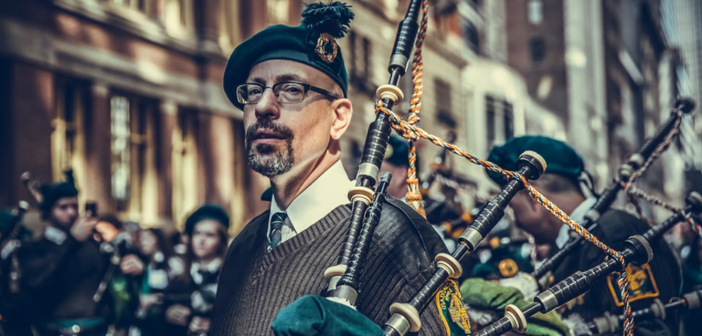Having Irish ancestry can be a very interesting and rewarding experience, but Irish genealogy is not without its challenges.
Irish records are extensive, but the sheer volume of documents that need to be researched makes it hard to know where to begin, or even how to go about tracing your Irish ancestors. Irish genealogy requires patience, endurance, and ideally some knowledge of Irish language names.
Many people with an Irish family name are put off by this level of complexity, but in reality, Irish naming conventions are relatively simple when they are broken down into their basic components! Names in Ireland changed dramatically during the 1500s, generally in response to political changes on the island.
A single family could have several different surnames in any one generation, depending on which part of Ireland they came from and whether or not Irish was their first language. In this guide, we will show you how Irish records can be searched and where Irish genealogy websites can be found that can give you insight into your Irish ancestry
Irish genealogy search engines
Most major Irish family history websites allow users to search databases online without charge. These sites tend to offer very different results, so it is worth trying out several if you want to discover as much as you can about your Irish ancestors! Although many commercial companies offer Irish family history searches, Irish genealogists suggest that the best results are usually obtained from non-profit organizations. Also, when searching commercial sites, be aware that they sometimes include non-Irish individuals and families.
Irish language documents
Irish genealogy can be especially challenging for people with limited knowledge of the Irish language. However, there are still ways to track down your family history if you are a beginner or don’t speak any Irish at all! The first step is to understand how the Irish language works and what an “Irish name” really means. Focusing on specific periods in time will also help you to discover more about your ancestors while minimizing the effort involved.
The best way to get started is by trying out free internet searches that will turn up Gaelic indexes which list births marriages and deaths by county, usually from the early 1800s onwards. If you want to go even further back in time, you can look at Church records (from the 1700s) or Civil registration records (from the 1800s).
Irish Language Names
An Irish name usually consists of a first or given name (so-called ‘Christian’ names), and a surname. The two do not necessarily go together, so the opposite situation from more familiar European countries, where it is common to have family names as well as given names. In Ireland, there were different naming conventions for men and women, which has resulted in many modern Irish family names being derived from feminine Christian names rather than masculine ones. A man named Pól would use his mother’s family name, while Seán whose mother was Eibhlín would adopt her surname! Of course, some families took their surnames from their trade, place of origin, or even the father’s name. This is true of some present-day names too such as Ryan (Mac a Ridire = Son of the King’s rider)
Old Irish occupations
When searching records, remember to note the occupations of your ancestors because these can help with identifying where and when a family lived in Ireland. For example, a group of people with the last name Cooley might live close to an area that was known for its wool trade. Also, the names of places where people lived can reveal their work. For instance, if someone was living in or near a town with an Irish name beginning with Baile (meaning ‘homestead’), this could indicate that they were involved in farming. Additionally, if your ancestors were involved in fishing, note down the names of rivers or bays where they lived. You can look up these Irish words for occupations online, or find the Irish equivalents of the names of common trades and professions in a dictionary.
Irish Townlands
Townland indexes can be very helpful for finding your ancestors, but remember that the same townland names were used continuously between old records and new ones. For example, if you find a townland named “Cnocán” on an old map, it may not be the modern place with the same name! As well as confusing older Irish place names, spelling was also inconsistent, so researching historical maps will help you to track down your family history more easily.
Church Records
Another way to find out more about your ancestors from the 1700s onwards is by looking at Church records. These records contain baptism years, marriage dates and death information that can be invaluable for filling in the gaps in family trees. In fact, Church records often give us a lot of extra information, such as occupation data and extended family connections.
Most Church records can be accessed through the National Library of Ireland. Try searching the online catalog to find out how many records for your parish and county are available. Although some indexes go up to 1851, you will probably need another resource for obtaining more recent Church information such as marriage banns and education statistics.





